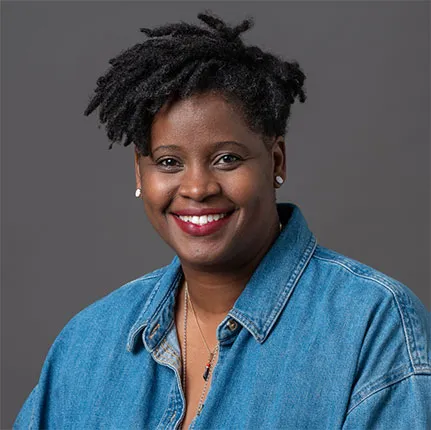
Gloriann Sacha Antonetty Lebrón is an Afropuertorican writer, communication strategist, and professor. She is the founder of Revista étnica. For more than 15 years, she has been working in communications for non profits and in advertising/public relations agencies. As a writer, she has published the collection of poems: Hebras, in addition to having stories published in the anthologies: Cuentos de Huracán, Maraña of Tejedoras de Palabras, Palenque: Puerto Rican anthology of thematic “negrista,” antiracist, Africanist, and afrodescendant. She has also published in the Academia magazine of EDP University, Boreales, Letras Magazine of the UMET, and Afroféminas, among others. She has been a communications professor at Universidad Sagrado Corazón (where she graduated from), and also at the Universidad del Turabo.
Who has shaped the way you show up today as an artist and/or activist?
Gloriann: My mother and my grandmothers shaped the way I show up as an artist. They were workers that dedicate their life to aesthetics in so many ways. In their creations as seamstress, as community and public service leaders through their love to fashion, music, dance and culture.
What is the power of connecting artists working at the intersection of arts and social movements across different geographies?
Us as artists have a monumental power when we connect from our intersectionalities and in the arts and social movements because we integrate our sensibilities and crafts to make possible change narratives that accelerate social change.
How do you see art with relation to social change and movements, toward gender justice and decolonization?
Gender justice and decolonization cannot happen without the arts. The arts give us the possibility to remove barriers and be free in unimaginable ways.
